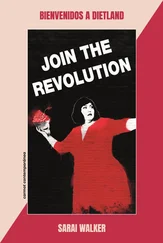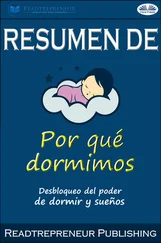As the women took their places around the table, Marlowe arrived with baby Huck. “Ooh, is Plum cooking again?” She rubbed her hands together in delight.
“Plum is always cooking,” I said, sliding a platter of bacon onto the table and catching sight of her tattoo: women don’t want to be me, men don’t want to fuck me. I finally understood what it meant.
“You all look tired,” Marlowe said. “Let me guess—bomb threat?”
The answer was confirmed by groans, and I put on another pot of coffee. We ate and talked about the bomb threat, then moved on to the far more interesting topic: Jennifer. We talked about Jennifer every day. The morning papers were scattered around the kitchen. The television in the corner was switched on. Leeta remained missing, which heightened suspicion that what she’d told her roommate was true: She knew who Jennifer was and had done something wrong. The news of the day was that Leeta had been spotted in Alaska. The day before she’d been sighted in El Salvador, and before that it was Kentucky. Whenever I saw her face, flattened in newsprint or flashing on the television screen, I felt a jolt. It didn’t seem possible—and yet it was true.
“These people seem convinced they’ve spotted her,” Sana said, digging into the quiche. “It’s a mass delusion.”
“She gets into your head and she haunts you,” I said. She had done that to me, and now she was doing it to everybody. The women at Calliope House knew about my history with Leeta, but I had never shown them the red spiral-bound notebook. Only Verena and Julia had seen that.
“I tried to call Julia again last night,” I said, buttering a waffle. Since leaving the underground apartment, I’d been trying to contact her. “She’s incommunicado.”
“Not surprising,” Rubí said. “Look at this.” She held up one of the newspapers, smeared with greasy bacon fingerprints. The headline read: DOES JULIA COLE KNOW LEETA’S SECRETS? Julia’s job working for Austen Media made her an irresistible target for the New York tabloids, which were already obsessed with Stanley Austen and his editors.
“Julia’s feeling the heat,” said Marlowe. “I wouldn’t be surprised if she and her loony sisters do know something.”
Verena drank her coffee, her normal brightness dimmed by lack of sleep. “If she does have more information, I don’t want to know about it. I don’t want to risk a connection to this tawdry business, no matter how tenuous.” Verena motioned in the direction of the television, where footage of some of Jennifer’s greatest hits was playing: the Harbor Freeway interchange, the bodies in the Nevada desert, Stella Cross and her husband. “It’s not Julia’s fault that her former intern got mixed up in this, but I’m not upset that she’s avoiding us. I’d prefer that she keep away. Is that awful?”
Murmurs of agreement spread around the table. Everyone assured Verena that they agreed with her point of view, that they all worked so hard on their various projects at Calliope House and it wouldn’t be fair for Julia’s connection to Leeta to taint their good work. Julia wasn’t part of Calliope House anyway, only an occasional visitor.
“I can see the headlines,” Verena said. “BAPTIST HEIRESS CONNECTED TO JULIA COLE, LEETA ALBRIDGE’S FORMER BOSS. You can imagine the kinds of stories they’d make up about me.”
“And me,” said Marlowe.
I listened to the women try to distance themselves from Julia, and I didn’t blame them. With her paranoia and secret projects, and her inability to be forthcoming about anything, it wasn’t surprising that Julia hadn’t endeared herself to the women of Calliope House. She irritated me as well, but I wasn’t so willing to throw her aside. She and I shared a connection to Leeta, which is something the other women couldn’t appreciate. They’d never even met Leeta.
As more women arrived, I replenished the table with fresh slices of toast and pots of jam, which were eagerly received. In Verena’s house there was never any mention of calories, there was no I shouldn’t eat this, I shouldn’t eat that. Plates were scraped clean, oooh s and ahhh s were abundant, women asked for more. No prayers were offered up to the diet gods: I’ll go to the gym later; I didn’t eat dinner last night. There was pleasure that didn’t have to be bargained for.
“Did I tell you I talked to my dad in Shiraz yesterday?” Sana said. “He told me that what Jennifer is doing reminds him of the American Westerns he likes to watch—the Wild West.”
“People in Iran are talking about Jennifer?” Rubí said.
“ Everybody is talking about Jennifer. She’s the most famous woman in the world,” Sana said.
Like everyone else, we spoke about Jennifer as if she were a single person, even though we knew that if Jennifer existed, she had a lot of help. For some she was a hero, for others a bogeywoman.
“Did you see the column in the New York Daily this morning?” Marlowe asked. “The columnist argued that Jennifer just needs to get laid, and guys in the comments section were writing things like, I bet Jennifer is fat and Jennifer is a ball-busting bitch and Who’d want to fuck her. ”
“I love that their only defense against Jennifer is to label her unfuckable,” Rubí said.
“That’s how dudes always try to bring us down,” Sana said.
“Jennifer will give herself up and do a nude spread in Playboy to make amends,” Marlowe said.
“Maybe she’ll do a Waist Watchers commercial,” I said. “She’ll say, ‘I was on a killing spree until these guys on the Internet called me fat. That was just the wake-up call I needed. Now I’ve taken control of my life by losing thirty pounds!’”
“Burst!” said Verena.
Laughter erupted. Sana and Rubí beat their fists on the table. Even Huck was giggling.
“I don’t think anything is going to stop her,” said Verena. “She’s an avenger, a Fury. She’s in our midst, but at the same time, I think she’s left this world behind.”
“After I’m finished with the companion volume to Fuckability Theory, I’m going to have to write a whole book about this,” Marlowe said. “Did I tell you that a journalist called me yesterday and asked, off the record, if I’d masterminded the whole thing?”
“Did you?” asked Verena, eyebrow arched.
I turned to Marlowe: “Are you Jennifer?”
“I thought you were Jennifer,” she said to me.
“Maybe I’m Jennifer and I don’t know it,” said Sana.
“Jennifer could be anybody,” Rubí said.
On the television in the corner, a yellow banner appeared at the bottom of the screen: LEETA ALBRIDGE SPOTTED? I scrambled to pick up the remote control and turn up the volume. A news reporter was speaking from the parking lot of a Dairy Queen in El Paso, place of another alleged sighting. A swarm of police officers circled the darkened fast food restaurant, many of them carrying automatic rifles. German shepherds on leashes scoured the area; a helicopter hovered overhead.
“What are they going to do if they find her?” I said, feeling sick and scared for Leeta.
“She wouldn’t be stupid enough to flee to Texas,” said Sana. “That’s the last place I’d go if the Man was looking for me.”
“True. And besides, Leeta wouldn’t do something as prosaic as hide out in a Dairy Queen,” Marlowe said.
I appreciated that they were trying to make me feel better, but the sight of men with guns hunting Leeta was a reminder that the Jennifer phenomenon wasn’t a joke. Like everyone else, we talked about what was happening as if it were a Western, as Sana had said, or a comic book or a superhero movie, since there were no comparisons that could be drawn from real life. But it wasn’t fantasy. Sometimes it was difficult to comprehend that.
Читать дальше












